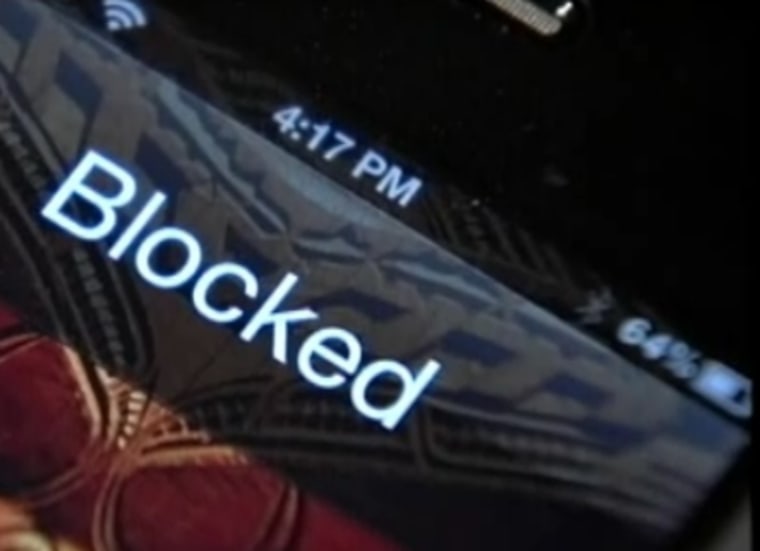
AT&T will start offering a service next week that will let customers whose phones and tablets are stolen have their devices blocked from use by the thieves.
The carrier is creating a stolen phone database to "prevent devices reported stolen from accessing wireless networks," whether it's AT&T or anyone else's, an AT&T spokesman told msnbc.com Friday.
Still not known is whether there will be a charge associated with the service; when asked about that, the spokesman said the carrier is "not providing any more details at this time."
Sprint and Verizon Wireless already have such a service, which is free to customers.
"When a customer reports a stolen or lost cellphone, they can list their phone in a database that will prevent anyone presenting the phone for activation from putting service on the phone," Verizon Wireless spokeswoman Brenda Raney told msnbc.com.
T-Mobile deactivates subscriber identity module (SIM) cards on phones that are reported stolen, but so far has not agreed to block the phones from being used. "We support the creation of a national stolen phone registry, including a solution to address the complexity of blocking stolen devices from being activated on our network and others, and we are working closely with CTIA and the FCC to develop industry-wide theft deterrent technologies and policies," a T-Mobile spokesman said in a statement to msnbc.com. "With an industry-wide approach, we look forward to making progress on these goals in the months ahead."
Last spring, under pressure by the Federal Communications Commission and police departments around the country, AT&T and the other three major U.S. carriers, Verizon Wireless, Sprint and T-Mobile, agreed to create a national database of stolen cellphones and tablets (those that are tied to carrier accounts).
By this fall, each of the carriers are to create their own databases, and in the next year, link those databases nationally. Similar programs exist in other 19 other countries, which in turn have linked their databases to an international one to help stop the transportation of stolen phones across borders.
The U.S. has been behind in having such a program. As the New York Daily News reported, half of the reported robberies in the city in the first 10 months of 2011 involved cellphones.
Washington, D.C. police chief Cathy Lanier told TODAY's Jeff Rossen and Avni Patel recently that cellphone theft is "a huge business. The after-market resale of these phones ... the profit that they're making is just driving this whole problem."
Stolen iPhones, in particular, make their way onto eBay or Craigslist, where they are quickly sold. If the phones are blocked from being used, they're essentially bricked — and worthless.
Check out Technolog, Gadgetbox, Digital Life and In-Game on Facebook, and on Twitter, follow Suzanne Choney.